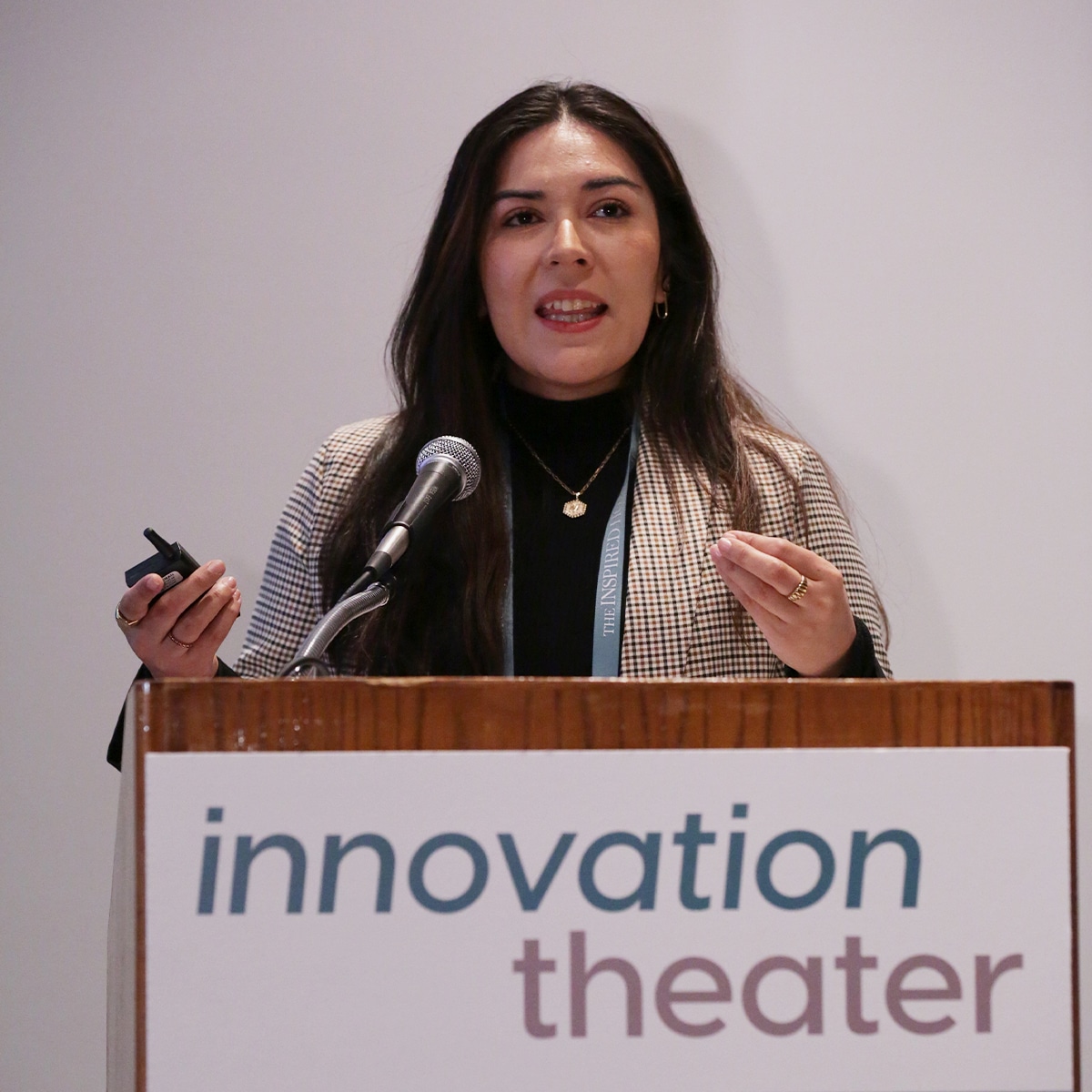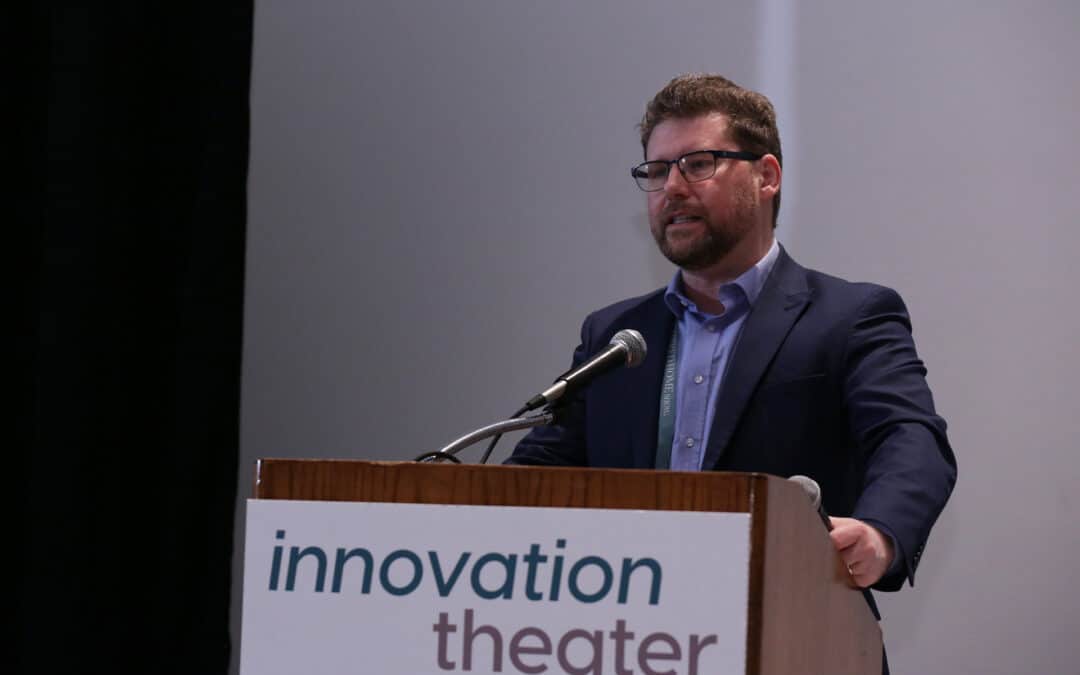Euromonitor’s Nick Stene, during an Innovation Theater presentation at The Inspired Home Show 2023, said consumers are waiting for the next big shock, but they are also looking for reliability. As such, consumers are prepared for the worst but looking over the horizon for something better. And it’s not much different with business.
“Reliability is what they are seeking,” said Stene (pictured above), Euromonitor’s global head of home and garden.
The session explored “Decision Making When Instability Is the Only Constant.” Stene and Catalina Flores, Euromonitor’s senior analyst, home and technology focused on the United States and Canada, looked at big-picture developments and those that have a specific effect on home goods.
Stene noted that the effects of the pandemic, inflation, geopolitical instability, rickety supply chains and related disruptions have made figuring out where things are going much more difficult. Even pricing, which many companies felt as if they had it down to a science pre-pandemic, has been scrambled as companies have tried to roll with inflation and sometimes waited too long to raise prices with the result of undermining their own bottom lines, sometimes to a dangerous degree.
He said even in the forecasting sector, using the past to provide guidance for the future, has become a less reliable model. Much of the past has been buried under the present. “Just in time” is dead, he said, replaced by “just in case” as companies recognize that they have to make a commitment to ensure product keeps moving to consumers even when logistics systems falter. As such, we live in an era of constant vigilance during which companies and consumers are becoming more flexible in their thinking and willingness to make changes to meet sudden shifts in their financial situations.

Catalina Flores, Senior Analyst, Home & Technology, Euromonitor
Flores said amid uncertainty, Euromonitor expects home categories to normalize over the coming months. Food storage and hydration are among those housewares categories that benefited from the pandemic than the return to work, as people wanted to have their own food and drink available for wellness reasons. Saving on food and spending less on restaurants will continue as inflation remains an issue that impacts consumer bank accounts and general thinking about how they should use their money.
In that environment, opportunities exist to drive sales in, for example, products that make cooking faster and easier. Although they learned to cook or expanded their skills, consumers don’t want to spend more time than necessary on the task, even if they are looking for advanced results. So, products that make gourmet or near-gourmet quality food faster and easier are likely to see consumer approval. Non-stick products, for example, win favor because they’re easier to use and less of a cleanup chore.
Flores added that climate change is an issue that all businesses will have to address, particularly as Gen Zers make it a particular issue and even more so than Millennials. Second-hand shopping is becoming more important with more consumers looking to purchase refurbished housewares. As for Millennials, she emphasizes that they shop online more regularly than any other demographic group. So, businesses that make home-related products and who want to target Millennials should be creating products backed by selling initiatives that address their needs. That’s especially the case with products that make life easier for busy young householders and parents, the Euromonitor team concluded.

